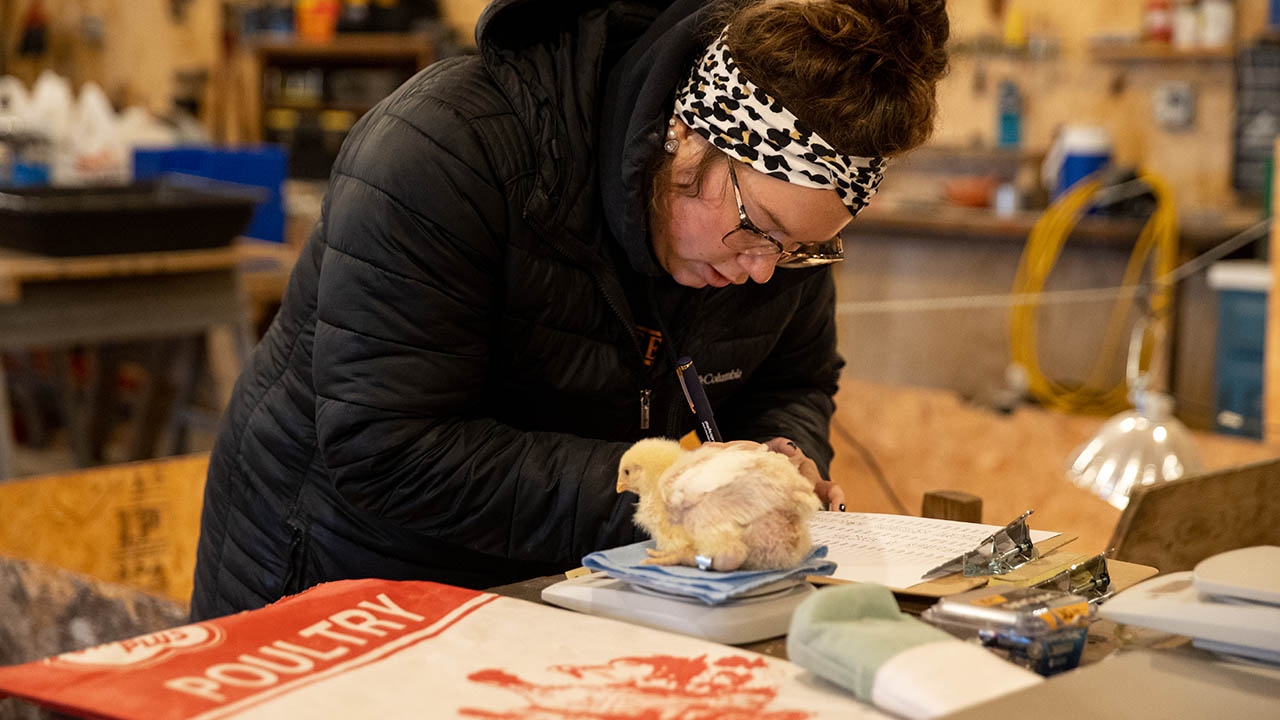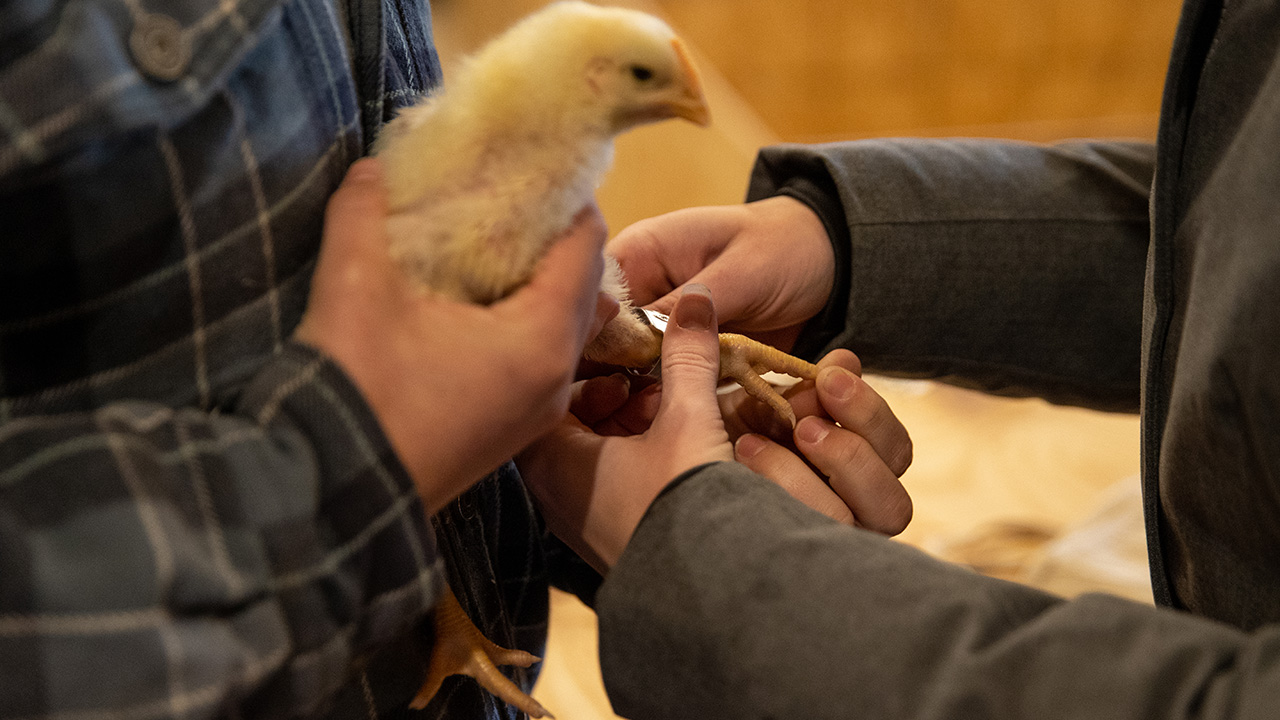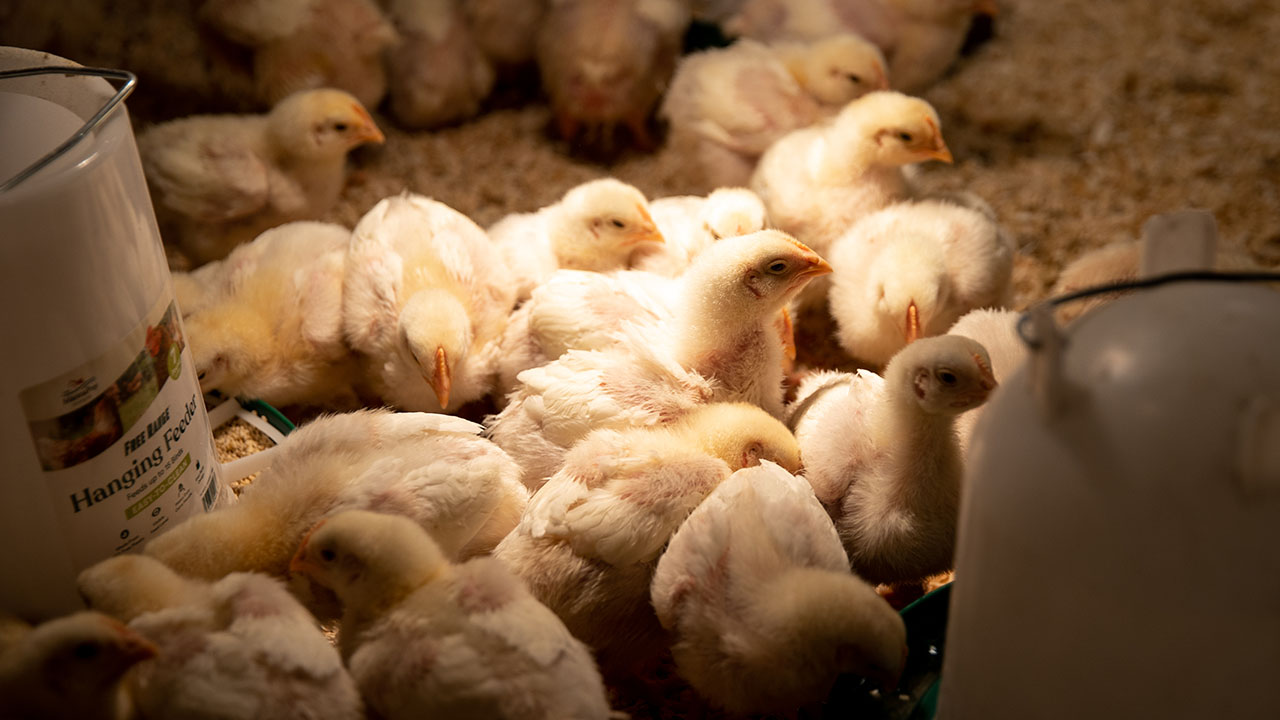


A group of animal science students at the University of Wisconsin-Platteville spent a portion of this semester designing and conducting a feeding trial in broiler chickens, with the goal of helping Wisconsin growers better understand how to use and market hazelnuts. When the trial ends next week, students will partner with the Southwest Wisconsin Community Action Program to donate the 60 processed chickens to local food pantries across the Driftless region.
The American hazelnut is a perennial shrub that is being developed for commercial nut production in Wisconsin and other parts of the upper Midwest. Producers have found, however, that if the hazelnut is too small, it is ineffective to run through the cracking machine and cannot be processed.
“If a significant percentage of your hazelnuts can’t be used, that really hurts the economics,” said Dr. Pete Lammers, associate professor in the School of Agriculture. “We want to figure out what to do with those that can’t be used and how we can add value to this somewhat unique crop.”
Lammers tasked students in his upper-level non-ruminant nutrition class to design a feeding trial with broiler chickens. The students set up 12 pens of five birds each. One-third of the birds received a regular diet, one-third received a regular diet mixed with 10% crushed whole hazelnuts, and the final group was given two feeders to select from – one with the control diet and one with just ground hazelnuts. Initial observations show the birds will eat the diet mixed with ground hazelnuts, but generally avoid the hazelnuts alone when given the choice.
Lammers said it’s too early to see growth differences between the birds, but he suspects they will grow at about the same rate— a result that’s not entirely surprising to him, as he added that the trial was not meant to drastically change the diet of broiler chickens in the industry, but rather to help hazelnut producers who want to find an alternative use for rejects, by presenting them with unbiased information.
“We’re trying to add value for the rejects of crop processing for this higher value crop,” said Lammers. “We want to give some information to those people who want to use this alternative feed and tell them how they could use it and what to expect if they do.”
Just as important as providing that information to the producers, Lammers said, is the opportunity for students to gain experience running a feeding trial.
“This project is really about teaching the students how to set up a feeding trial and how to run it and the million and one things that can and will go wrong when you do,” he said. “These students are seniors in animal science and will be graduating soon, and many of them are going into positions within the feed or animal industries, where they are going to be asked to interpret results and make decisions. It’s really important that they know what goes into the research trial – good and bad – so they can be more critical consumers of research papers, data and publications. I think it’s been really useful for students that way, and they’re having a lot of fun with the project.”
The processed chickens will be delivered to SWCAP on Monday, Dec. 13. The project was made possible with funding by UW-Platteville’s Student Research and Engagement Fund and support from the USDA-SARE competitive grants program.